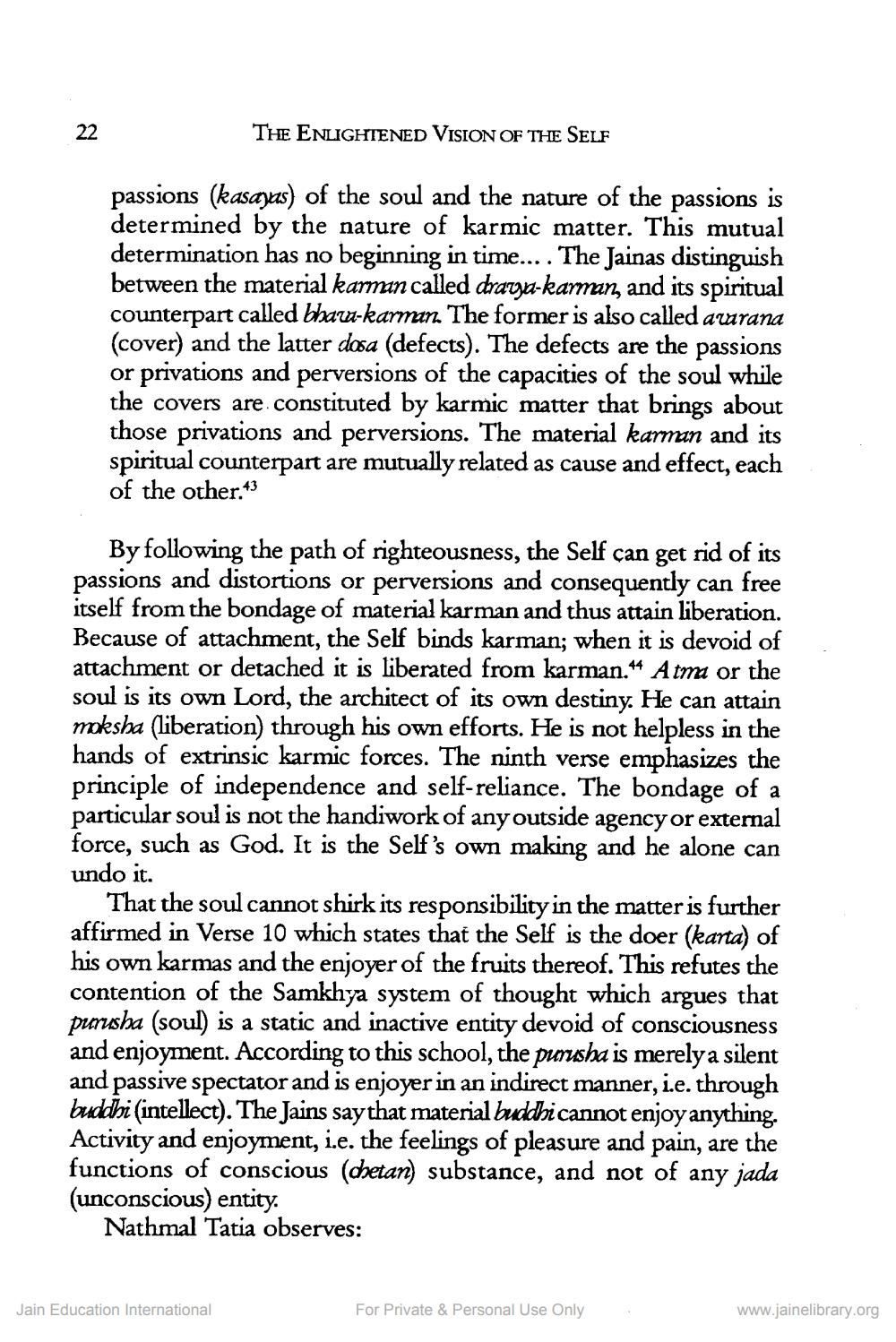________________
THE ENLIGHTENED VISION OF THE SELF
passions (kasays) of the soul and the nature of the passions is determined by the nature of karmic matter. This mutual determination has no beginning in time.... The Jainas distinguish between the material karman called drazza-karman, and its spiritual counterpart called bhara-karman. The former is also called ararana (cover) and the latter dosa (defects). The defects are the passions or privations and perversions of the capacities of the soul while the covers are constituted by karmic matter that brings about those privations and perversions. The material karman and its spiritual counterpart are mutually related as cause and effect, each of the other.43
By following the path of righteousness, the Self can get rid of its passions and distortions or perversions and consequently can free itself from the bondage of material karman and thus attain liberation. Because of attachment, the Self binds karman; when it is devoid of attachment or detached it is liberated from karman.°4 Atma or the soul is its own Lord, the architect of its own destiny. He can attain moksha (liberation) through his own efforts. He is not helpless in the hands of extrinsic karmic forces. The ninth verse emphasizes the principle of independence and self-reliance. The bondage of a particular soul is not the handiwork of any outside agency or external force, such as God. It is the Self's own making and he alone can undo it.
That the soul cannot shirk its responsibility in the matter is further affirmed in Verse 10 which states that the Self is the doer (karta) of his own karmas and the enjoyer of the fruits thereof. This refutes the contention of the Samkhya system of thought which argues that purusha (soul) is a static and inactive entity devoid of consciousness and enjoyment. According to this school, the purusha is merely a silent and passive spectator and is enjoyer in an indirect manner, i.e. through buddhi (intellect). The Jains saythat material buddhicannot enjoy anything. Activity and enjoyment, i.e. the feelings of pleasure and pain, are the functions of conscious (chetan) substance, and not of any jada (unconscious) entity.
Nathmal Tatia observes:
Jain Education International
For Private & Personal Use Only
www.jainelibrary.org




